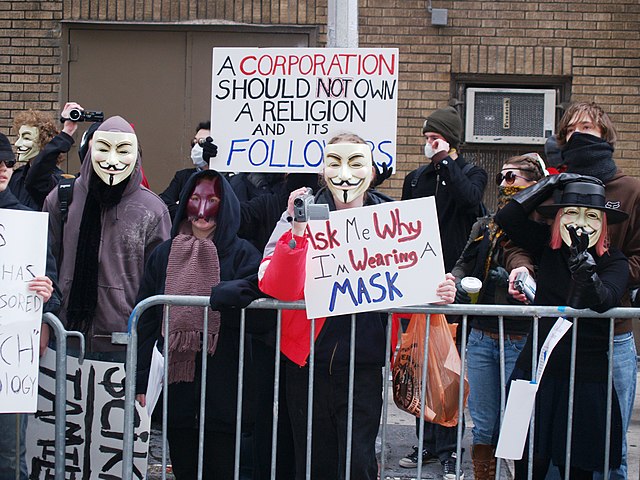Anonymity describes situations where the acting person's identity is unknown. Some writers have argued that namelessness, though technically correct, does not capture what is more centrally at stake in contexts of anonymity. The important idea here is that a person be non-identifiable, unreachable, or untrackable. Anonymity is seen as a technique, or a way of realizing, a certain other values, such as privacy, or liberty. Over the past few years, anonymity tools used on the dark web by criminals and malicious users have drastically altered the ability of law enforcement to use conventional surveillance techniques.
Protesters outside a Scientology center on February 10, 2008, donning masks, scarves, hoods, and sunglasses to obscure their faces, and gloves and long sleeves to protect them from leaving fingerprints.
Modern pasquinades glued to the base of Pasquino, one of the Talking Statues of Rome
Privacy is the ability of an individual or group to seclude themselves or information about themselves, and thereby express themselves selectively.
Banksy's One Nation Under CCTV graffiti, adjacent to an actual CCTV camera
Advertisement with a highlighted quote "my face got redder and redder!" There is a highlighted quote on the importance of being honest with oneself, and after two and a half pages concludes with a suspicion that telephone operators are listening in on every call.




